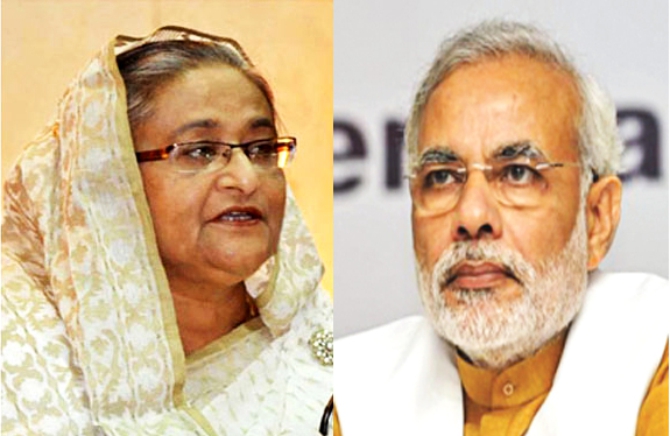Syed Munir Khasru
Prime Minister Modi has lost no time in making overtures to neighbours. Beginning with Bhutan, his second trip was to Nepal, the third may be Sri Lanka. Bangladesh is India’s most important neighbour by all considerations — security, cross-border migration, sharing of common resources. Yet, the Indian prime minister’s first meeting with Sheikh Hasina, Prime Minister of Bangladesh, was on the sidelines of the UN General Assembly yesterday.
“Borders must be bridges not barriers,” so said Modi in Nepal. With the largest shared border, Bangladesh is a key factor in India’s territorial integrity and security. Bangladesh has extended significant cooperation to India on counter-insurgency. However, during 2001-2006 there were around 577 reported killings of Bangladeshis by Indian border forces, and during 2009-2013 there were around 300 killings; it never came to a halt. In contrast, most of the deaths in the US-Mexico border are caused by inhospitable natural conditions as opposed to shooting by border forces.
BSF Eastern Region chief’s admission that killing of teenage girl Felani was an evil act indicates that authorities have finally wised up to the fact that ruthless killings at the border cannot go on unaccounted for. This month’s home secretary level meeting reaffirmed the commitment of both countries to increase cooperation to curb crime, terrorism, and human trafficking, and the Modi government has referred the land boundary deal to the parliamentary committee.
Last month’s visit of V.K. Singh, India’s Junior External Affairs Minister and Minister for NESI, underscores that Indo-Bangla cooperation is essential for development of NESI. A key irritant in Bangladesh and NESI has been illegal migration. However, Bangladesh has allowed transport of food to NESI and the golden rule of reciprocity is the order of the day.
On the Teesta water-sharing, Modi’s predecessor got stuck in the quagmire of Paschimbanga politics. Modi has the single majority to deliver and he could bring along Mamata on his trip to Bangladesh. The 1996 Ganges Water Sharing Treaty and the 2011 Framework Agreement on Cooperation for Development provide the basis to conclude water sharing treaties based on equity and fairness. The reality is that the Joint Rivers Commission has been ineffective as India pushes forward with river inter-linking project, promised in BJP’s manifesto, which will be a disaster for Bangladesh. However, India has accepted the verdict by the tribunal based on UN Convention on Law of Sea establishing Indo-Bangla maritime boundaries.
In 2012-13, Bangladesh was the number one export destination for India in South Asia. The para-tariff and non-tariff barriers have clipped the benefit of India’s tariff removal on most Bangladeshi exports. As Indian companies put their footprint across the globe, Bangladesh, with low labour cost and socio-cultural affinities, is an ideal destination as in the recent investment of Bajaj Group for motorcycle production in Bangladesh. It would help start offsetting the more than $4 billion trade surplus in India’s favour. Bangladesh also needs to ensure that there is no recurrence of the few botched investment deals in the recent past.
India is setting up a coal-fired power plant in Khulna with Bangladesh. There has been transmission 500 MW capacity grid connectivity for Bangladesh’s power import from India. Nepal also is keen to export power to Bangladesh. Energy cooperation between Bangladesh, India, Nepal, and Bhutan can be strengthened by developing a regional grid. The invitation to South Asian leaders in the swearing-in ceremony sent the right signal; now Modi must lead the Saarc actors walk the talk.
In 2009, President Obama made his first overseas visit to Canada, which has the largest border with US. Tony Abbott, the Australian prime minister, visited Indonesia, the largest neighbour, and Chinese President Xi Jinping visited Russia. By all geographic, economic, and strategic considerations, Bangladesh should have been Prime Minister Modi’s first stop.
The writer is a Professor at the Institute of Business Administration (IBA), University of Dhaka.
Source: The Daily Star











May be Modi thought this way – as long as Awami League is in power, things can be taken as granted. No active diplomacy is needed.